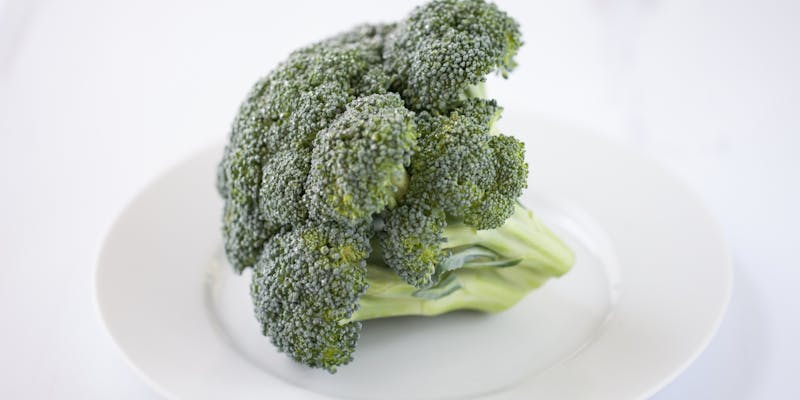Understanding Carrot's Nutrition Facts and Health Advantages
Dec 05, 2023 By Nancy Miller
Root vegetables like carrots stand out in the culinary world due to their distinctive nutritional profile and fascinating history. These nutrient-dense, crunchy, sweet, and earthy treats are a mainstay in cuisines all around the world. This article gives a brief history of the carrot, from its modest beginnings to its current status as an essential part of diets all around the globe. Here we lay the groundwork for a more in-depth investigation into the plethora of ways carrots promote health and wellbeing by highlighting their adaptability and nutritional worth. Following this, we will discuss the many health benefits of carrots and their individual nutritional components, highlighting their importance in a well-rounded diet.

Nutritional Profile of Carrots
Macronutrients in Carrots
Carrots, a widely consumed vegetable, are notable for their low-calorie but nutrient-rich profile. Predominantly composed of water, they are low in fat and protein but high in carbohydrates, primarily in the form of natural sugars and dietary fiber. A 100-gram serving of carrots typically contains around 41 calories, 0.9 grams of protein, less than 0.2 grams of fat, and about 10 grams of carbohydrates, of which 3 grams are dietary fiber. This composition makes carrots a great option for a healthy snack or a dietary addition, providing satiety without high caloric intake.
Vitamins and Minerals in Carrots
Carrots are a treasure trove of vitamins and minerals, contributing significantly to their health benefits. They are an excellent source of vitamin A, derived from high levels of beta-carotene, which is essential for good vision, immune function, and skin health. Carrots also provide vitamins K1, essential for blood coagulation, and B6, which plays a role in converting food into energy. They offer a range of minerals, including potassium, essential for blood pressure control, and smaller amounts of calcium and iron. The nutrient richness of carrots supports various bodily functions and promotes overall health.
The Role of Antioxidants in Carrots
Carrots are rich in antioxidants, compounds that help protect the body against oxidative stress and associated chronic diseases. Beta-carotene, the most prominent antioxidant in carrots, is responsible for their distinctive orange color. It is a precursor to vitamin A, providing its associated health benefits. Other antioxidants in carrots include lutein, zeaxanthin, and various polyacetylenes, which contribute to eye health and may reduce the risk of age-related macular degeneration. These antioxidants also have anti-inflammatory properties and may aid in cancer prevention. The regular consumption of carrots can thus be a valuable part of a diet aimed at reducing the risk of various chronic illnesses.
Carrot's Health Advantages: An In-Depth Look
Boosting Eye Health with Carrots
Carrots, often touted for their eye health benefits, are indeed a boon for vision due to their high beta-carotene content. This compound is a precursor to vitamin A, which is crucial for maintaining healthy vision, especially in low-light conditions. Additionally, carrots contain lutein and zeaxanthin, antioxidants that protect against age-related macular degeneration and cataracts. Regular consumption of carrots not only supports the structural integrity of the eyes but also acts as a preventive measure against common eye diseases, making them an essential component of a vision-healthy diet.
Cardiovascular Benefits of Carrots
The heart-health benefits of carrots are equally noteworthy. Rich in potassium, carrots aid in blood pressure regulation, thus reducing the risk of heart disease. They also contain soluble fibers that help lower blood cholesterol levels by binding with bile acids. Furthermore, the antioxidants in carrots, particularly beta-carotene and other carotenoids, combat oxidative stress, a key contributor to heart disease. Regular inclusion of carrots in the diet can, therefore, play a significant role in maintaining cardiovascular health, showcasing their importance beyond just vision support.
Carrot's Health Advantages: An In-Depth Look
Carrots in Cancer Prevention and Immune Support
Carrots offer potential benefits in cancer prevention, attributed to their rich antioxidant content, including beta-carotene, which is converted into vitamin A, an essential nutrient for immune function. These antioxidants combat oxidative stress and may reduce the risk of certain cancers. Carrots also bolster the immune system, thanks to their vitamins and minerals, particularly vitamin C. This enhances the body's ability to fight infections and maintain overall health.
The Impact of Carrots on Skin and Aging
Carrots' influence on skin health and aging is significant. Rich in beta-carotene, a natural skin protector against UV radiation, carrots help prevent skin damage and premature aging. Regular consumption can lead to a healthy complexion, attributed to their ability to promote skin repair and regeneration. Furthermore, the vitamin C in carrots aids in collagen production, which is essential for skin elasticity and preventing wrinkles, making them a natural ally in maintaining youthful skin.
Incorporating Carrots into Your Diet
Creative and Nutritious Recipes Featuring Carrots
Carrots, versatile and nutritious, can be incorporated into a multitude of recipes. For a healthy snack, carrot sticks with hummus or a yogurt dip are both delicious and nutritious. Carrots can also be grated into salads for a crunchy texture or sliced into stir-fries for a sweet and savory flavor. Roasting carrots with a drizzle of olive oil and herbs enhances their natural sweetness, making them a perfect side dish. For something more substantial, carrots can be blended into soups or stews, adding richness and depth of flavor. They also make a great addition to smoothies for a nutrient boost.

Tips for Selecting and Storing Carrots
Selecting and storing carrots properly ensures their freshness and nutrient preservation. When choosing carrots, look for firm, smooth, and brightly colored ones without cracks or soft spots. Smaller carrots tend to be sweeter and more tender. To store, remove any greens (as they can pull moisture from the roots), and keep the carrots in a plastic bag in the refrigerator’s crisper drawer. This will maintain their freshness for several weeks. Avoid storing carrots near ethylene-producing fruits like apples or pears, as this can cause them to become bitter. Proper storage not only preserves their quality but also their nutritional value.
Debunking Common Myths About Carrots
Common myths about carrots often overshadow their true nutritional value. A prevalent misconception is that excessive carrot consumption turns skin orange, which only occurs in rare cases of overconsumption. Another myth is that carrots can dramatically improve night vision. While they are beneficial for overall eye health due to beta-carotene, they don't significantly enhance nocturnal vision capabilities. Understanding these misconceptions is crucial for appreciating the realistic yet substantial health benefits carrots offer, encouraging a balanced and informed approach to incorporating this nutritious vegetable into a healthy diet.
Conclusion
Embracing carrots in our daily diet promises a healthier future. Their rich nutritional profile, encompassing essential vitamins, minerals, and antioxidants, makes them a powerhouse of health benefits. From improving vision and boosting immunity to promoting skin health and reducing the risk of chronic diseases, carrots offer myriad health advantages. Their versatility in culinary uses, ranging from raw snacks to cooked dishes, makes them an appealing addition to any meal. Incorporating carrots into our diet is a simple yet effective step toward nurturing our health and well-being.

Understanding the Causes of Nausea and Vomiting After Exercise

What to Do if You Have Dehydrated Skin

Discover the Benefits of Leg Raise Exercise

Impact of Eating After Exercise on Weight Gain

Tasty Ways to Incorporate Broccoli into Your Weight-Loss Diet

Tea Tree Oil

Ease Your Back: Gentle Yoga Poses for Stretching Hamstrings


